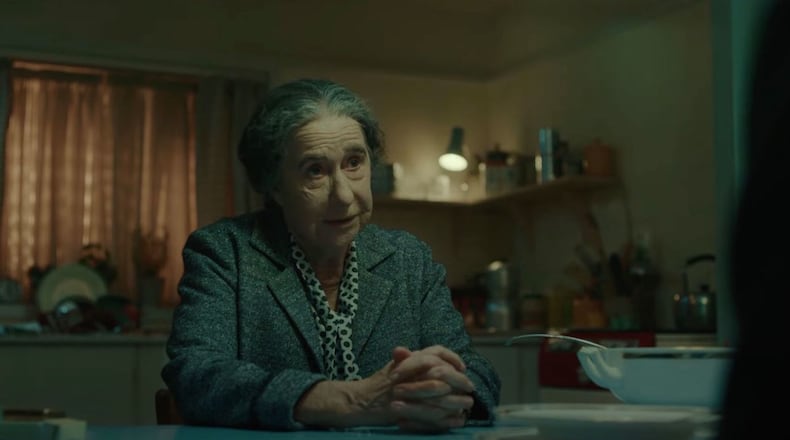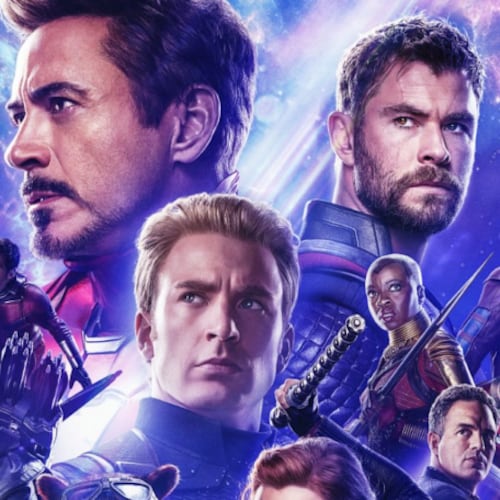Film director Guy Nattiv was just an infant when Egypt and Syria invaded Israel on Yom Kippur in 1973 in a surprise attack that lasted 19 days. While Israel eventually pushed back the Arab forces, the war resulted in thousands of deaths on both sides and Golda Meir’s departure as prime minister.
“My mother went to a shelter while I was a baby and my father went to war,” said Nattiv, 50, in an interview with The Atlanta Journal-Constitution last week at the Epicurean Atlanta hotel in Midtown. “They survived this crazy time. I grew up on stories about Yom Kippur War but nobody really knew the truth of what really went down.”
At the time, he said Meir was deemed the scapegoat for what was seen as a military debacle from an Israeli standpoint although the final results were decidedly ambiguous.
Only a decade ago did Israel release declassified archives from that time period that paint a much more nuanced picture of Meir’s role in regards to the war. The revelations became the basis of a new film Nattiv directed called “Golda” starring Oscar-winning actress Helen Mirren as Meir. “Golda” is now out in area theaters.
Nattiv credits make-up designer Karen Hartley Thomas with transforming Mirren into Meir. It took her a month to get the prosthetics just right. Every day during production, Mirren would arrive at the make-up trailer at 4:30 a.m. each morning and spend two and a half hours turning into Meir. It would take another 90 minutes for her to take the make-up off at the end of the day.
“She’s a hero,” Nattiv said. “She’s a 78 year old woman. Not one complaint.”
Mirren is not Jewish, an issue which caused criticism in some circles, but Gideon Meir, Golda’s grandson, actually requested Mirren to play his grandmother because he felt the actress could personify her. By the time Nattiv got involved with the project, Mirren was already committed to the project.
“When she met me, she said if I wanted to recast her with a Jewish actress, she was okay with that and wouldn’t take it personally,” Nattiv said. “Then she said, ‘Let’s see if we see the same movie.’ I said I didn’t want to make a biopic from birth to death. I also didn’t want to make a war movie that’ we’ve seen before. But I did want to go under the skin and feel Golda’s loneliness and how she dealt with secret cancer treatment.”
Mirren agreed that this was the right approach, and he kept her on.
Besides the declassified documents, Nattiv gleaned info from a Golda Meir documentary and spoke to Meir’s bodyguard Adam Snir and press secretary Meron Medzini, both who are still alive. He picked up details like how Meir covertly sneaked into a hospital through its morgue to get radiation treatment. He also learned that Meir smoked up to 100 cigarettes a day and did so even in the hospital.
Those cigarettes are basically a separate character in the movie. Meir steadily chain-smoked through the entire movie.
“I think she was killing herself because she felt she was going down with the country,” Nattiv said. “The smoke in the movie is also a metaphor for not being able to see a meter in front of you. You also can’t see the intelligence ahead of you. I use it as something dark and misty that is poisoning everybody.”
Since “Golda” is focused around Meir and the military commanders around her, this film is an intimate affair, shot largely in small rooms, hallways and the occasional rooftop when Meir needs a moment to breathe.
Casualties weighed heavily on the 75-year-old grandmother, who kept a notebook to track the rising death toll. “It reminded her how many people they were losing every day,” Nattiv said.
While many leaders are surrounded by a coterie of advisers and lackeys, Meir only had her assistant Lou Kaddar (Camille Cottin) with her at all times who helped her with her illness.
“It shows how lonely and desperate she was,” Nattiv said. “She was always an outsider. She was American. She was surrounded by Zionist commanders who didn’t even ask her military questions. It didn’t help that she was a woman. They often didn’t even stand when she came in the room.”
Five years later, Meir was in her death bed as she watched Egyptian President Anwar Sadat and Israeli Prime Minister Menachem Begin make peace brokered by U.S. President Jimmy Carter, but she was skeptical.
“Even though she had met Sadat and joked with him,” Nattiv said, “she was like, ‘Is he for real? I’ll believe it when I see it.’”
Last month, Nattiv screened “Golda” with Mirren at the Jerusalem Film Festival before 6,000-plus Israelis and got to meet his heroes Oliver Stone and French film-making duo the Dardenne Brothers.
“It was in a beautiful open-air amphitheater with gorgeous weather,” he said. “It was an amazing experience just to see the Israeli audience react to it in such an emotional way.”
IN THEATERS
“Golda,” in area theaters now.
About the Author
Keep Reading
The Latest
Featured


